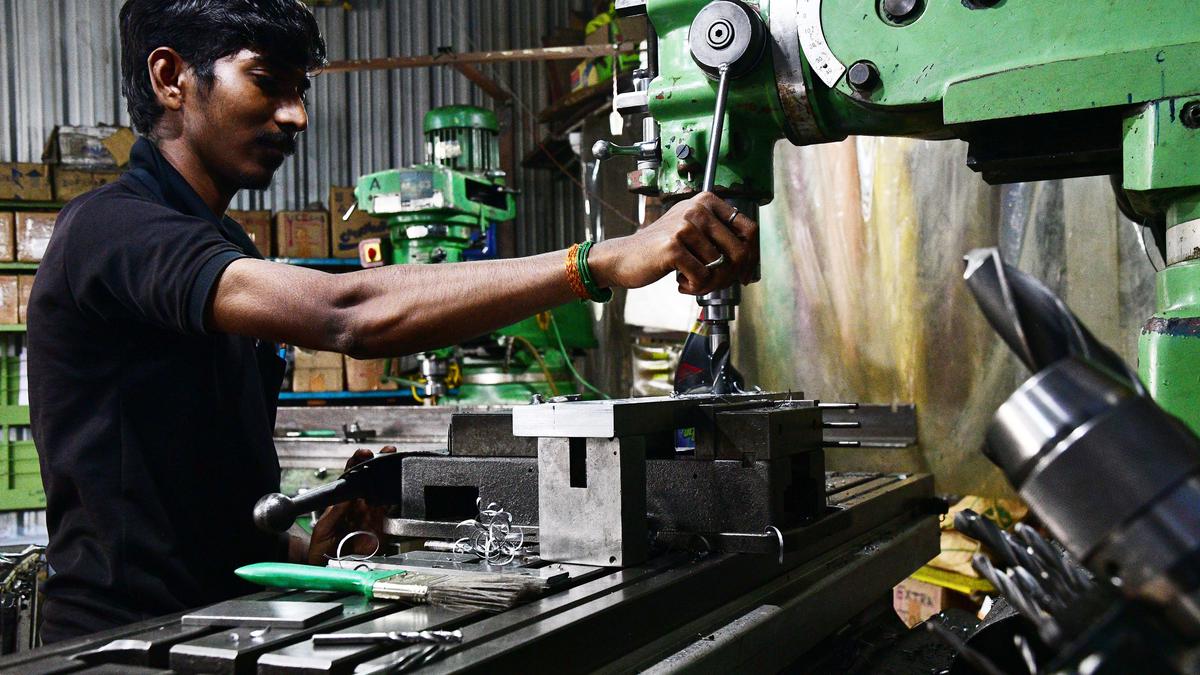
Micro and small-scale industries in Coimbatore city seek exemption from professional tax
The Hindu
Micro and small-scale industries in Coimbatore city seek exemption from running licence and professional tax due to challenging business situation.
Micro and small-scale industries that operate in the Coimbatore Corporation limits have sought exemption from running licence and professional tax.
The Tamil Nadu Association of Cottage and Tiny Enterprises (TACT) and the Federation of Coimbatore Industrial Associations (FOCIA) have submitted a memorandum to the Coimbatore Corporation demanding exemption from the levies saying the industry faced challenging business situation.
The Corporation officials held a meeting here recently with trade and industry representatives on the running licence and professional tax rates.
The associations said the micro and small-scale units do job orders for larger industries in sectors such as pumpset, wet grinder, fabrication, plastic, and grill works. These units do not get orders throughout the year and the margins are low. Since demonetisation, the micro and small-scale units are facing several challenges and many have professional tax arrears too. So, the civic body should not collect arrears from these units and should not take action on them. It should also exempt the units from running licence and professional tax. The tax slabs should be determined based on the electricity units consumed and not on number of people employed or area of the building, the associations said.
According to J. James, president of TACT, the Corporation is looking at steep hike in the charges collected from industries and trade. The Coimbatore Corporation had already hiked property tax 250 %. Several industries that were operating in the fringe areas of the city became part of the Corporation as they were located in the areas added to the Corporation and now had no option but to pay multiple taxes to the civic body. The associations demanded at the meeting a single tax for businesses in the Corporation areas. Further, the Corporation should have separate meetings with each sector before finalising the tax slabs, he said.

“Writing, in general, is a very solitary process,” says Yauvanika Chopra, Associate Director at The New India Foundation (NIF), which, earlier this year, announced the 12th edition of its NIF Book Fellowships for research and scholarship about Indian history after Independence. While authors, in general, are built for it, it can still get very lonely, says Chopra, pointing out that the fellowship’s community support is as valuable as the monetary benefits it offers. “There is a solid community of NIF fellows, trustees, language experts, jury members, all of whom are incredibly competent,” she says. “They really help make authors feel supported from manuscript to publication, so you never feel like you’re struggling through isolation.”

Several principals of government and private schools in Delhi on Tuesday said the Directorate of Education (DoE) circular from a day earlier, directing schools to conduct classes in ‘hybrid’ mode, had caused confusion regarding day-to-day operations as they did not know how many students would return to school from Wednesday and how would teachers instruct in two modes — online and in person — at once. The DoE circular on Monday had also stated that the option to “exercise online mode of education, wherever available, shall vest with the students and their guardians”. Several schoolteachers also expressed confusion regarding the DoE order. A government schoolteacher said he was unsure of how to cope with the resumption of physical classes, given that the order directing government offices to ensure that 50% of the employees work from home is still in place. On Monday, the Commission for Air Quality Management in the National Capital Region and Adjoining Areas (CAQM) had, on the orders of the Supreme Court, directed schools in Delhi-NCR to shift classes to the hybrid mode, following which the DoE had issued the circular. The court had urged the Centre’s pollution watchdog to consider restarting physical classes due to many students missing out on the mid-day meals and lacking the necessary means to attend classes online. The CAQM had, on November 20, asked schools in Delhi-NCR to shift to the online mode of teaching.









